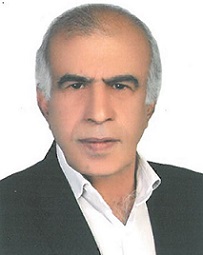C reative
Particle
Higgs
CPH Theory is based on Generalized light velocity from energy into mass.
CPH Theory in Journals
|
Particle Accelerators Race To Discover Higgs Boson
|
|
Fermilab, the U.S. maker of the Tevatron accelerator, is claiming it’s European rival, particle physics lab CERN, is rapidly losing ground in the race to discover the elusive Higgs boson, or "God particle," BBC News reported. Theoreticians predict the “God Particle” would help to explain why matter has mass and is a major goal of CERN's Large Hadron Collider (LHC). However, Fermilab says the odds of its detecting the famed particle first are now 50-50 at worst, and up to 96% at best. Both machines are designed to collide sub-atomic matter at very high speeds in hopes that the Higgs will emerge from the debris. Last September, an accident damaged some of the magnets that make up the LHC’s giant colliding ring. Repair work is still under way on the atom smasher. The enforced downtime might cost the European lab one of the biggest prizes in physics, Project leader Lyn Evans said. Officials from CERN and Fermilab were at the American Association for the Advancement of Science (AAAS) annual meeting in Chicago. The European Organization for Nuclear Research (CERN) constructed the LHC in the early 1980s in an attempt to identify the so-called God Particle. Some scientists at the LHC’s September launch near Geneva predicted the Higgs would be revealed as soon as summer 2009, but an accident occurred only a week later that is expected to stall the accelerator for at least 12 months. Given the LHC’s downtime, Fermilab has increased the intensity of research at their Tevatron accelerator in Illinois. Director Pier Oddone presented the Tevatron’s latest data at the AAAS meeting. His Fermilab colleague, Dr. Dmitri Denisov, said they now have a very good chance of seeing hints of the Higgs before the LHC will. "I think we have the next two years to find it, based on the start date Lyn Evans has told us. The probability of our discovering the Higgs is very good - 90% if it is in the high mass range. And the chances are even higher - 96% - if its mass is around 170GeV (giga-electron volts). "In that case we would be talking about seeing hints of the Higgs by this summer." Oddone said the smaller the mass of the particle, the more difficult and time-consuming it will be for Fermilab to detect. “Even at the lowest end of the range, the chances are 50% or above,” he suggested. Denisov added that Tevatron is running extremely well and they are increasing their data-set very quickly. LHC scientists said instead of having their usual two-month Christmas break, they are planning to run all the way through. "It's a race. Whoever is first is first." The Tevatron has already picked out about eight collision events, which may be hints of the Higgs, Fermilab said, adding that until the number crunching is done, it is not possible to distinguish these from "background noise". Professor Lyn Evans, the LHC’s project leader, agreed the Tevatron is working better than he ever imagined it could and is accumulating data like mad. However, he said the LHC has given them an extra time window they’ve certainly been making the most of. Evans said: “If they do find the Higgs, good luck to them. But I think it's unlikely they will find it before the LHC comes online. They may well be in a position to get a hint of the Higgs but I don't think they'll be in a position to discover it.” “Pier Oddone put the odds at 50-50 but I think it's less than that,” he said. "In one year, we will be competitive. After that, we will swamp them." Evans agreed the competition was healthy for "both parties", although missing out on the Higgs would be a "sour consolation", he admitted. "But don't forget, there is also a whole spectrum of physics to be investigated at the LHC which the Tevatron can never do." Image Caption: The Tevatron accelerator in Batavia, Illinois.
Source: Red Orbit
1 2 3 4 5 6 7 8 9 10 Newest articles
|
|
Sub quantum space and interactions from photon to fermions and bosons |
Interesting articles
Since 1962 I doubted on Newton's laws. I did not accept the infinitive speed and I found un-vivid the laws of gravity and time.
I learned the Einstein's Relativity, thus I found some answers for my questions. But, I had another doubt of Infinitive Mass-Energy. And I wanted to know why light has stable speed?
